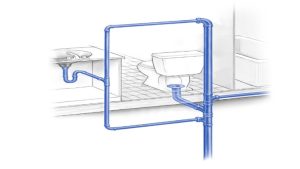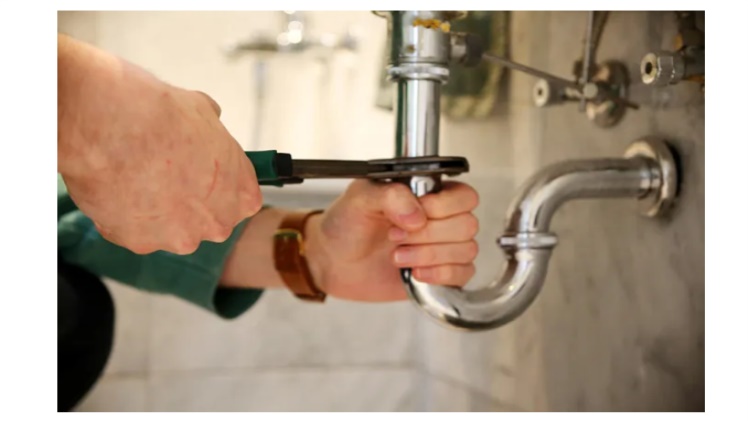In the bustling world of apartment living, where daily routines blend seamlessly with the comforts of home, the importance of maintaining apartment plumbing often goes unnoticed. However, the pipes, drains, and fixtures that make up the plumbing system are the unsung heroes that enable modern apartment dwellers to enjoy a life of convenience and comfort. In this article, we’ll shed light on the critical significance of apartment plumbing, explore the far-reaching impact of plumbing issues on apartment rental living, and outline the purpose and scope of our comprehensive guide to keeping the flow of apartment life uninterrupted.https://housebouse.com/
I .The Importance Of Maintaining Apartment Plumbing
Apartment plumbing is the lifeblood of a multifamily dwelling, a complex network of pipes that ensures the delivery of clean water and the efficient removal of waste. Its significance becomes evident when we consider the following:
Clean Water Supply: Plumbing systems provide residents with a continuous supply of clean, potable water for drinking, cooking, bathing, and sanitation. This access to safe water is a cornerstone of modern living.
Waste Disposal: Plumbing systems efficiently transport wastewater away from living spaces, preventing health hazards and ensuring a hygienic environment.
Comfort and Convenience: From hot showers to functional kitchens, apartment plumbing is integral to daily comfort and convenience. It supports appliances like dishwashers and washing machines that simplify life.
Property Value: A well-maintained plumbing system contributes to the overall value of the apartment complex, attracting tenants and enhancing its desirability.
A. The Impact Of Plumbing Issues On Apartment Living
When apartment plumbing operates smoothly, it often goes unnoticed. However, when plumbing issues arise, their impact can be disruptive and far-reaching:
Inconvenience: Leaky faucets, clogged drains, or malfunctioning toilets can disrupt daily routines and lead to frustration for residents.
Property Damage: Plumbing issues can cause water damage to floors, walls, and ceilings, leading to costly repairs and potentially rendering units uninhabitable.
Health Concerns: Slow or blocked drainage can create unsanitary conditions and pose health risks to residents.
Tenant Retention: Frequent plumbing problems can lead to tenant dissatisfaction and higher turnover rates, affecting the overall stability of an apartment complex.
II. Regular Inspection And Preventative Maintenance
When it comes to apartment plumbing, proactive care is the cornerstone of a trouble-free living experience. In this section, we’ll delve into the significance of routine checks, the art of identifying early signs of plumbing problems, and the creation of a maintenance schedule that can save both time and money while ensuring a smoothly flowing apartment rental life.
A. Importance of Routine Checks
Regular inspection and preventative maintenance are akin to health check-ups for your apartment’s plumbing system. Here’s why they are vital:
Preventing Emergencies: Routine checks allow you to catch potential plumbing issues before they escalate into emergencies. By addressing problems early, you can avoid costly repairs and inconvenient disruptions.
Ensuring Tenant Satisfaction: A well-maintained plumbing system contributes to tenant satisfaction. Happy residents are more likely to stay longer, reducing turnover costs for landlords and property managers.
Prolonging System Life: Regular maintenance extends the lifespan of plumbing components, saving property owners from the expense of premature replacements.
Compliance with Regulations: In some regions, regular plumbing inspections may be required by law. Staying compliant not only avoids legal issues but also ensures the safety and well-being of residents.
B. Identifying Early Signs of Plumbing Problems
To effectively maintain apartment plumbing, it’s crucial to recognize the early signs of potential issues. Here are some common red flags:
Slow Drains: If sinks, showers, or tubs are draining slowly, it could indicate a blockage in the pipes.
Low Water Pressure: Reduced water pressure may result from mineral buildup or pipe corrosion.
Unusual Sounds: Strange noises, such as banging or gurgling, may suggest issues within the plumbing system.
Water Leaks: Even minor leaks should be addressed promptly to prevent water damage and mold growth.
Foul Odors: Persistent unpleasant odors may be a sign of sewer line issues or drain traps that need cleaning.
Fluctuating Water Temperature: Inconsistent water temperature could indicate problems with the water heater or mixing valve.
Water Discoloration: Rusty or discolored water may point to corroded pipes or issues with the water supply.
C. Creating a Maintenance Schedule
A well-structured maintenance schedule is the key to a proactive approach to apartment plumbing care:
Regular Inspections: Set a schedule for routine plumbing inspections. This could be quarterly or semi-annually, depending on the age and condition of the plumbing system.
Seasonal Checks: Consider seasonal variations. For example, check the heating system and pipes before the winter season to prevent freezing and bursting.
Tenant Education: Encourage tenants to report plumbing issues promptly. Provide guidance on how to identify potential problems, such as leaks or water pressure changes.
Professional Services: Engage plumbing professionals for comprehensive inspections and maintenance tasks. They have the ability to spot underlying problems and offer tailored advice.
Emergency Preparedness: Have a plan in place for responding to plumbing emergencies. Ensure that tenants know how to turn off water supplies in case of leaks.
Documentation: Maintain records of all maintenance activities, including inspections, repairs, and upgrades. Keeping detailed records allows you to monitor the system’s development over time.
III. Conclusion
In the dynamic world of apartment rental living, where daily routines and comfort converge, the significance of regular plumbing maintenance cannot be overstated. As we conclude our exploration of apartment plumbing care, we emphasize the critical importance of proactive maintenance, the myriad benefits it brings to both tenants and property owners, and the call to action for all apartment dwellers and property managers to prioritize plumbing care for a harmonious and trouble-free living environment.

Frequently Asked Questions (FAQ)
Q1: Why is maintaining apartment plumbing important?
- Maintaining apartment plumbing is crucial to ensure a reliable supply of clean water, efficient waste removal, tenant satisfaction, and the prevention of costly plumbing issues.
Q2: How often should I check my apartment’s plumbing system?
- Regular checks should be conducted at least annually. However, it’s wise to inspect for plumbing issues more frequently, especially in older buildings.
Q3: What are some signs of plumbing problems in apartments?
- Common signs include slow drains, low water pressure, unusual sounds, water leaks, foul odors, fluctuating water temperature, and discolored water.
Q4: Can tenants perform their own plumbing maintenance?
- Tenants can perform basic maintenance like clearing minor clogs and reporting issues, but professional plumbing inspections and repairs are typically the responsibility of property managers or landlords.
Q5: What should I do if I notice a plumbing issue in my apartment?
- Report the issue to your property manager or landlord immediately. Prompt reporting can prevent the problem from worsening and causing further damage.
Q6: How can property managers prevent plumbing problems in apartment buildings?
- Property managers should establish routine maintenance schedules, educate tenants about responsible water usage, and engage professional plumbing services for regular inspections.
Q7: Are there any eco-friendly practices for apartment plumbing maintenance?
- Yes, you can conserve water and reduce your environmental impact by fixing leaks promptly, using water-saving fixtures, and reporting running toilets for repairs.
Q8: Can neglecting plumbing maintenance lead to safety hazards in apartments?
- Yes, neglecting plumbing maintenance can lead to safety hazards such as water damage, mold growth, and unsanitary conditions, posing health risks to residents.

